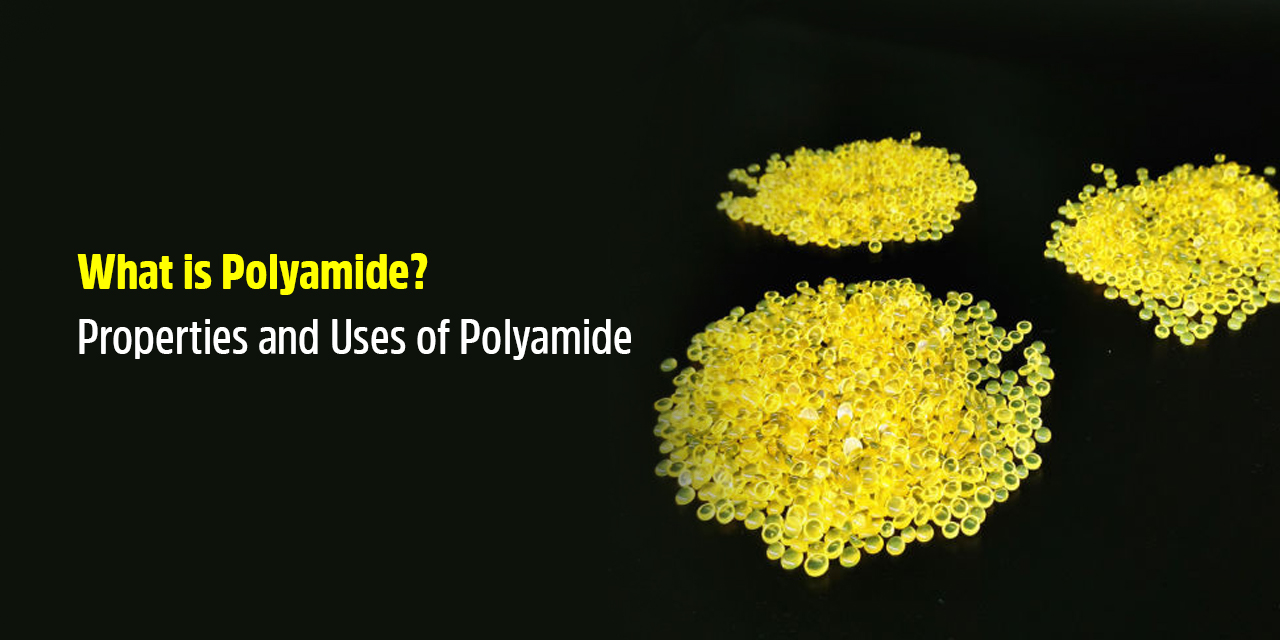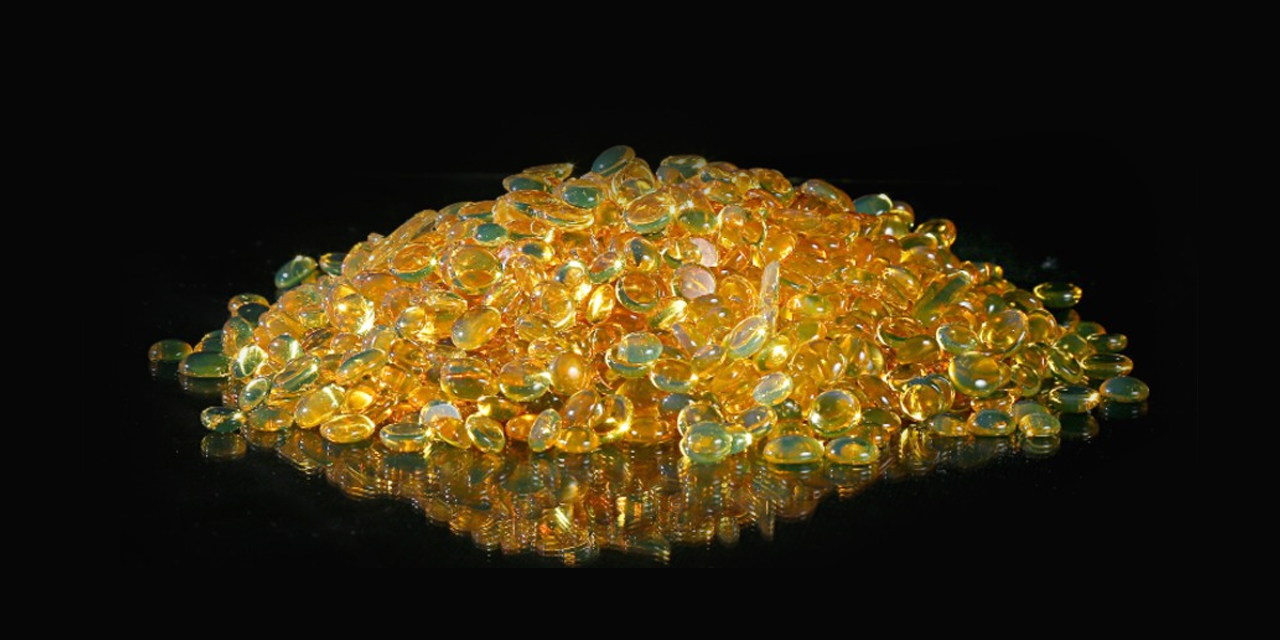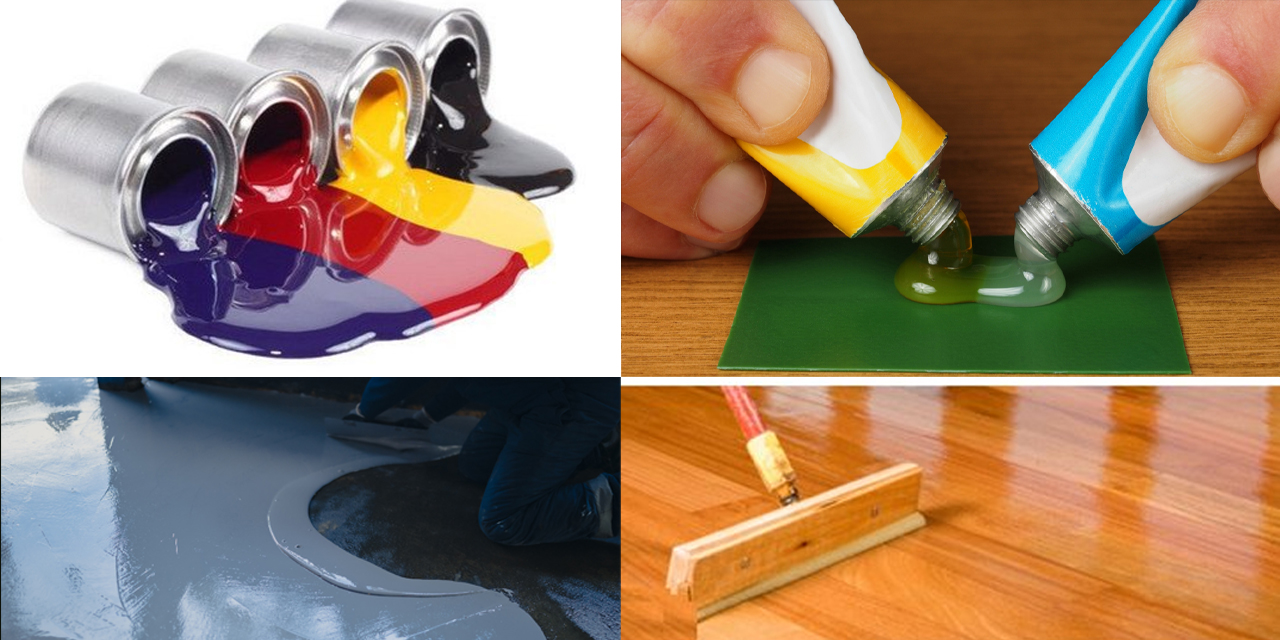What is Polyamide? – Properties and Uses of Polyamide

Engineers and manufacturers usually consider a material that is compact and flexible when compared to metal while also being able to offer high protection and durability.
Polyamide is an amazing solution that gives affordability and convenience in many industrial applications with top-notch product quality. Industries rely on the best polyamide distributors in India to use its significant features for various applications.
What is polyamide used for? Why do industries demand polyamides on a large scale? – You need not search for answers anymore. This blog post aims at helping you with the answers and discussing the major applications of polyamide in specific industries in detail.
What is Polyamide?
When an amino group of one molecule combines with the carboxylic group of the other, it forms a polyamide, which is a synthetic polymer. It incorporates synthetic nylon fibers. To be precise, amide bonds are held together to form the robust polymer known as polyamide.
For instance, fabrics like wool, silk, etc. are natural polyamides. In engineering, synthetic polyamide is crucial since it offers top performance at an affordable cost.
Polyamides belong to three families, known as aliphatic polyamides, semi-aromatic polyamides, and aromatic polyamides or aramids. Nylon resin belongs to the aliphatic polyamides family.
Kevlar is a powerful and heat resistant fibre, which is also an aramid. It seems to be more sturdy and offers great resistance properties when compared to the aliphatic polyamides.
Polyamides turn into woven form when you use them in fabrics, while it gives the shape to a harder structure when you cast them into a resin. Polyamide is a strong combination of superior properties like mechanical strength and flexibility.
The production process of Polyamide
When two monomers, i.e, Adipic acid and 1,6 diamino hexane combine, polyamides take birth. When these raw materials react together, they produce a by-product of every polymer linkage. The combination of these two polymers is called polymerization.
This leads to the production of nylon salt, which you heat further to evaporate the water. Once polymerization completes, you add additives and pigments. The additives can modify the physical properties and characteristics of the polymer.
After the additives make the necessary changes, they can extrude the molten polyamide nylon along the holes to get long nylon laces. In a water bath, you further let the laces cool down and thicken.
After this process, you cut the laces into granules of 3-4 millimeters in length. Finally, you can package and ship these granules to the processing plants. This aids the process of re-melt and extruding them through dies to produce various castings and fibres.
Also Read: Properties And Uses Of Xanthan gum
Properties of Polyamide 
There are many properties of Polyamide that makes it the ideal choice for production and industrial purposes:
Abrasion Resistance
The material offers amazing resistance to wear and abrasion. Its high quality makes it extensively durable in every contact area.
Chemical Resistance
Polyamides offer great resistance to chemicals, hence they offer high-end protection for cables and wires in all environments.
Corrosion resistance
They offer high corrosion protection from caustic materials. They are crucial for settings like refineries, chemical processing facilities, wastewater treatment plants, etc—which would help in very slow metal corrosion.
Electromagnetic Resistance
The advanced engineered polyamides can also exhibit EMC shielding and high electrical properties to aid sensitive applications.
Flexibility
Flexural strength is one of the core properties of Polyamides. It helps Polyamides to bend and fix to every space. It also enhances the assembly and installation in spaces where rigid metal structures can’t accommodate. Polyamides stay flexible even after long exposure to the highest temperatures.
Flame resistance
The polyamides have a huge temperature range; aliphatic polyamides have a melting temperature of about 500-550K which give them stunning heat resistance. They provide thermal properties like resistance to the fire and create less smoke, and even some polyamides have self-extinguishing flames while they catch fire.
Low density
Polyamide has a low density which makes it an extremely lightweight material. With lightness, polyamides are effortless to build, develop, and install.
Strength
Apart from the flexibility and the density of Polyamides, Polyamide also offers the best tensile strength and top outstanding impact strength. For example, as per the strength tests, the polyamide system can easily resist the piercing of insulation and can defend against huge forklift pressure with dimensional stability.
UV light resistance
Ultraviolet rays may damage certain materials; Polyamide restricts the deteriorating impact. It can exhibit the best under sunlight for many years.
Also Read: Application and Properties of Zinc Phosphate
Benefits of using Polyamide
Here are the benefits that make Polyamide an unmatched material that companies procure from the chemical suppliers in Delhi to manufacture top quality products.
Faster to assemble
When compared to the other competitor material, Polyamide products are quicker to assemble. They are compact and relatively easy to carry, and compatible with frill-type connectors.
Affordable
Being greatly cost effective, Polyamides have lower costs of establishment than the other materials. This is because they are effortless to carry and include low production costs when compared to metals.
Strong and durable
These are extremely powerful since they have different protection features like color stability and great melt temperature. Their characteristic features last for a long time with no need for additional maintenance.
Leak Proof seal
Polyamide develops a rigid seal that doesn’t leak. Different from PVC and various other plastics, they don’t safeguard any aromas, hence the pets won’t be tricked to chew through them.
Multi-functional
The Polyamides project is the best for different mechanical properties and uses. Consequent to the casting process, the businesses can manufacture the pieces into various multifunctional components.
Noise Reduction
Since Polyamide offers sound division, it is the perfect choice to adapt to the noise environments and can reduce the disturbance to the residents nearby.
Also Read: Niacinamide Uses: The Complete Beginner’s Guide
Why do Industries choose Polyamide?
Polyamide epoxy makes use of Polyamide resins that provides polyamide epoxy with many advantages compared to the other epoxy types. One benefit is that polyamide chains offer outstanding resistance to strong acids.
Nevertheless, it holds up great in marine environments due to the water resistance. Polyamide epoxies usually also incorporate the ability to adapt to outdoor environments more than other types of epoxies. They also have greater flexibility for uses where the base material would be subject to less deformation.
However, you should be careful about its fast dry time which gives the least time to make the required adjustments to the coatings. Just like the quick dry time, polyamide epoxies also exhibit a long time to cure, giving a short time to cure the coating as well. Rather, they don’t inhibit chemicals or any other epoxies.
Since they have high water resistance, polyamide epoxies can be amazing coating materials even in environments with great moisture— for instance offshore oil/gas equipment and water treatment plants. The characteristics like weathering and flexibility make them the best option for coatings. This is why the industries demand Polyamide in large quantities from the leading Chemical distributors in Delhi.
Also Read: Important Properties and Uses of Urea Formaldehyde Resin
What is Polyamide used for?
Polyamide resins incorporate both reactive and non-reactive elements. They have a high performing semi transparent finish that supports to prevent the damaging impacts of fungi, water, and UV radiations on the wood exterior.
They can also help the penetration of wood pores to defend against the harnessing effects of weather. The polymerization process of amino acid or through the polyamine condensation with a poly carboxylic acid forms this product.
They make an ideal addon to the cost effective and easy coating techniques. Numerous applications relate to polyamide coatings in the industry.
Hence, Polyamide is used for industrial specific applications as follows:
- Printing ink and ballpoint pen ink
- Ink Binders
- Paints and epoxy paints
- Epoxy floorings
- Hot melt adhesives and seal coatings
- Varnishes
- Lacquers
- Rubber products
Polyamide epoxies are generally the basic ingredients in primers to serve the purposes like adhesion, flexibility, wetting, and high corrosion resistance. They offer resistance to weather, moisture, and alkali.
They offer unparalleled adhesion to the substrates like polymers, metals, carbon and silica based materials like carbon fibre, glass fibers, etc.
Also Read: How to Select the Ideal Chemical Supplier in India
Care Guide while using Polyamide paints
1. Try to keep the paint away from sparks, heat, and open flame while making the mixing, storage, and application processes.
2. Ensure adequate ventilation to maintain the vapour concentration to less than 25% so that you can reduce the explosive limit.
3. Prevent breathing the vapours repeatedly and avoid direct contact of paint with eyes and skin.
4. Keep your hands clean after managing the paint and also before you eat or smoke.
Also Read: Chemicals Used in Daily Life
Final Note
Polyamide is an essential add-on to engineering and industrial applications due to its strong impact resistance and thermomechanical properties. If the products aim to withstand prolonged exposure to changing environments, polyamides are the ideal options businesses can go for.
If you are in search of one of the most prominent Polyamide Distributors In Delhi, Bansal Trading Company (BTC) caters to a plethora of industries such as pigments, plastics, home & personal care, and metal pre-treatment, inks, paints, coatings, and so on.
With an in-depth understanding of the product chemistries and the characteristics of the chemicals, BTC supplies bespoke chemicals and materials to the industries for further processing of products.
Contact us to explore more about the range of chemicals Bansal Trading caters to the customers.
BTC_WEB_ADMIN






